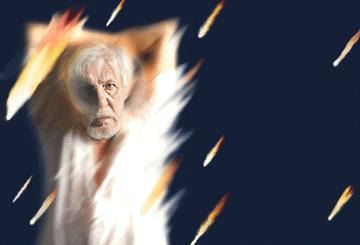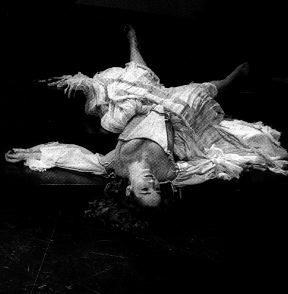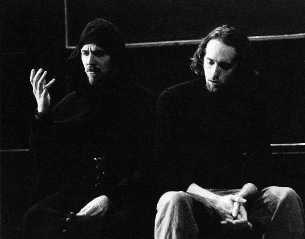Canadian Theatre Encyclopedia
Shakespeare

William Shakespeare is the most produced non-Canadian playwright in the country. His works are performed in all styles at virtually all the major theatres, in French and in English, across Canada. Like Molière's, they are deeply embedded in the history of Canadian theatre. His were among the first works performed in the New World, they were the raison d'être of the foundation of the nation's largest theatre company (Stratford Festival), and they are still being taught in schools, with interpretations which change from era to era.
Though it is likely that soldiers performed snippets of Shakespeare - perhaps even whole plays - (even if only in the guise of satire) before 1780, the first professional theatre company to settle in Canada, was Allen's Company of Comedians and they presented Shakespeare as early as 1786. Since then, managing to avoid the roadblocks Molière was encountering through church sanctioning, Shakespeare has flourished in Canada. And even despite the ongoing debates on Taming of the Shrew's sexism or Merchant of Venice's antisemitism (or perhaps because of them), Shakespeare continues to be popular. As with Molière, his works are being Canadianized (at Stratford since 1956 with Michael Langham's celebrated Henry V with Franco-Canadian actors playing the French), or being completely deconstructed by artists like Alexandre Hausvater (whose 1990 adaptation of King Lear was a cabaret about ageing and family), Robert Lepage (who has directed Shakespeare for the National Theatre of Great Britain), and Martine Beaulne (whose rereading of La mégère apprivoisée/The Taming of the Shrew at the Théâtre du Nouveau Monde in 1995 was a study of theatre and the "roles" the sexes play). Among those translating Shakespeare are Marco Micone, Michelle Allen, Michel Garneau, Jean-Louis Roux and Antonine Maillet.

What abides is Shakespeare's ability to draw crowds. Although the Stratford Festival has cut back on productions of the Bard while it pumps up musical theatre, Shakespeare-in-the-park companies like Edmonton's Free Will Players, Calgary's Shakespeare by the Bow, Toronto's Shakespeare in the Rough, Oakville's Festival of the Classics, Montreal's Repercussion Theatre, Winnipeg's Shakespeare in the Ruins, Saskatoon's Shakespeare on the Saskatchewan, Halifax's Shakespeare by the Sea, St. John's Shakespeare by the Sea Festival, Newfoundland, and Vancouver's Bard on the Beach continue to draw thousands.

Companies continue to be formed around his works, such as HurlyBurly, in Toronto, which launched in September, 2001, with Macbeth; and Thou Art Here, founded in 2011 by Andrew Ritchie and Neil Kuefler, Aberta’s alternative Shakespeare company bringing the Bard’s work and adaptations to the most unexpected spaces with site-sympathetic productions.
Readings: Mark Leiren-Young. Shylock. Vancouver: Anvil Press, 1996 for a fascinating look at the controversies surrounding producing Shakespeare, specifically The Merchant of Venice.
See also the Canadian Adaptations of Shakespeare Project, which tracks the many manifestations of Shakespeare's plays in Canadian theatre: https://vsmic.canadianshakespeares.ca
Profile by Gaetan Charlebois
Last updated 2021-10-12

